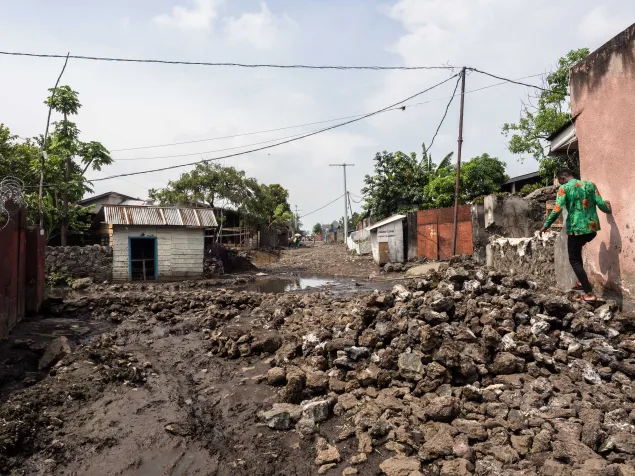Partnerships and innovative financing solutions boost access to safe water for hundreds of thousands of people in DR Congo
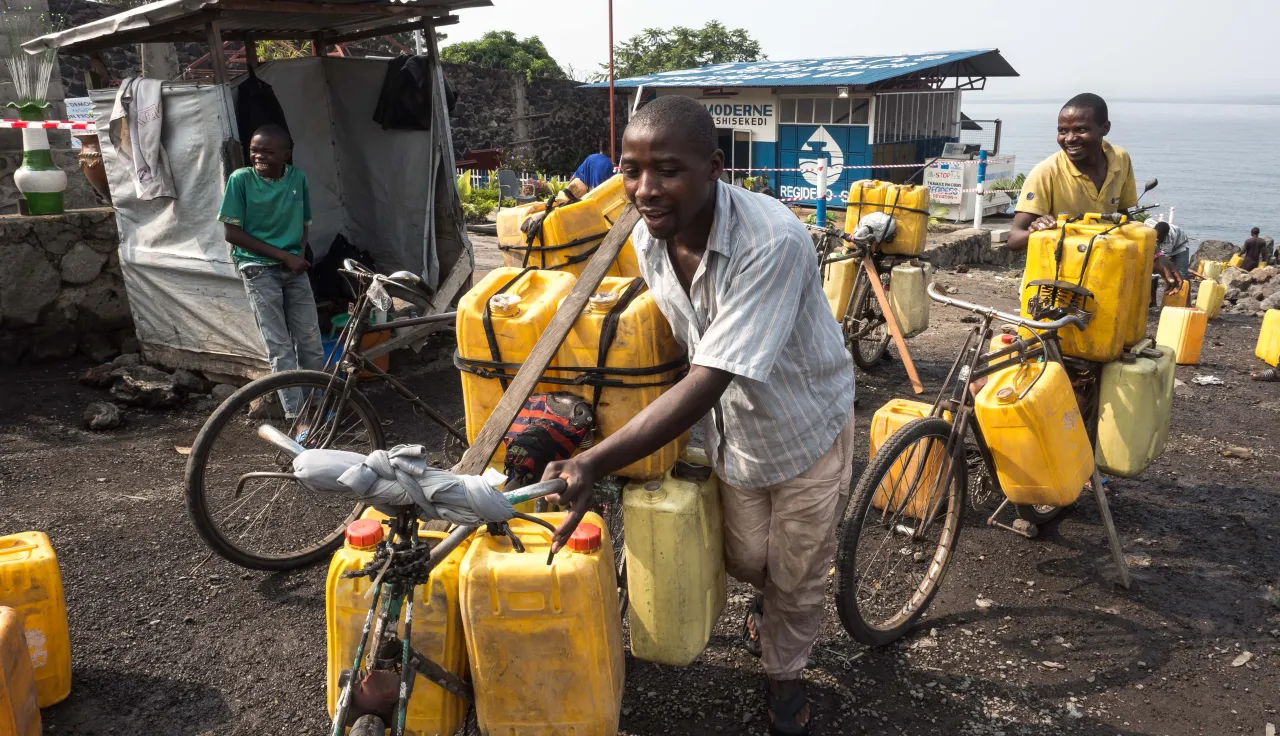
By 2026, the ICRC’s Goma West Resilient Water Project (GWWP), in the Democratic Republic of Congo, will help over 330,000 people have access to safe and affordable drinking water.
Developing long-term sustainable solutions takes time and money. The success of such projects lies in the trust and confidence of key partners and innovative public-private financing solutions.
There's no shortage of water in Goma, eastern DRC. The city sits on Lake Kivu, plus it rains a lot.
The problem is you wouldn't want to drink it ... untreated. You might get diarrhea, cholera or other water-borne diseases.
Unfortunately, this isn't an option for over half the population who don't have access to clean water.
People either fetch untreated water directly from the lake, carrying heavy 20-litre jerrycans long distances, or they pay high prices at distribution points for water that is not available every day due to decaying water infrastructure.
Time is of the essence, as the city's population is expected to rise to 1.1 million people by the end of the decade. The situation is particularly dire in west Goma where many of the city's most vulnerable communities live amid dire sanitary conditions.
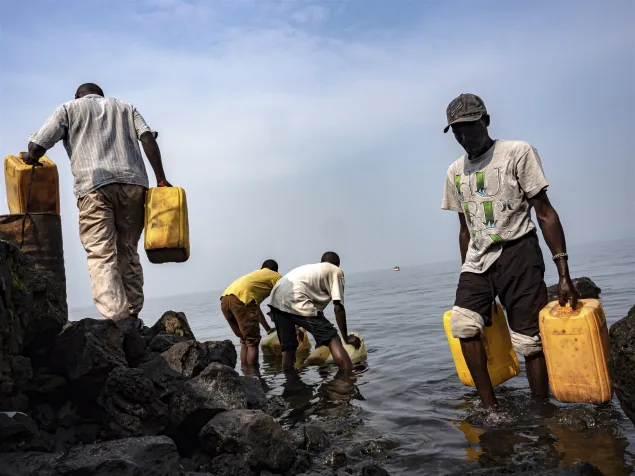
Street vendors get water directly from the lake.
The ICRC's Goma West Resilient Water Project aims to bring clean water to 330,000 city residents by 2026. Building on the ICRC's extensive knowledge and decades-long presence in Goma, the project will provide long-term access to safe and affordable drinking water. It will transform lives in a region that has faced multiple crises in recent decades, including conflict, violence and natural disasters.
This project will have a positive and sustainable impact on the lives of hundreds of thousands of people. Its implementation shows how important local partnerships and those across the humanitarian, development and private sectors have become. These partnerships bring complementary skills and expertise, ensure local ownership and deliver new ways of funding and financing. This collaborative approach will help us deliver sustainable impact where it is most needed.
ICRC President Peter Maurer
Watch the video
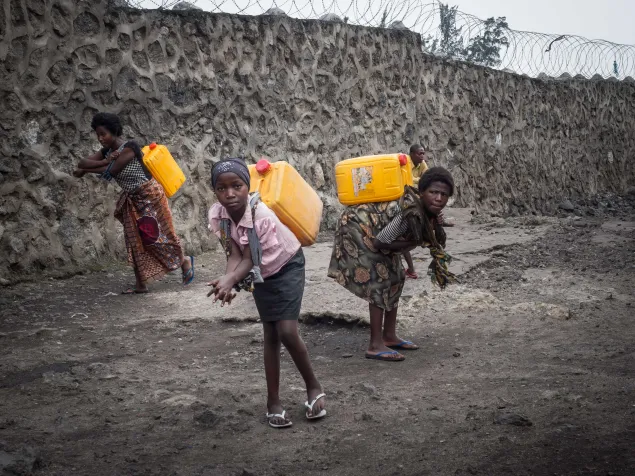
The women and children often have the thankless task of supplying water to their homes.
Initiated in 2019, the GWWP is the ICRC's third New Financial Model (NFM), following in the footsteps of the Humanitarian Impact Bond and the ICRC Climate and Environment Transition Fund. The CHF 40 million project brings together humanitarian and development funding with private sector participation and investment.
Around CHF 17 million has been raised as of May 2022, including a CHF 15 million foreseen from the World Bank through combined grant and credit financing to the DRC government (under the Access, Governance, and Reform for Water and Electricity Sectors Project).
Axel van Trotsenburg, managing director of the World Bank, said he was pleased to be partnering with the ICRC on such an "innovative and much-needed" project:
"Strong and effective partnerships such as this, are a crucial part of the World Bank's approach to successfully working in fragile, conflict and violence affected environments, where leveraging the comparative advantages of both organizations will provide a safe and more reliable water supply for the citizens of Goma."
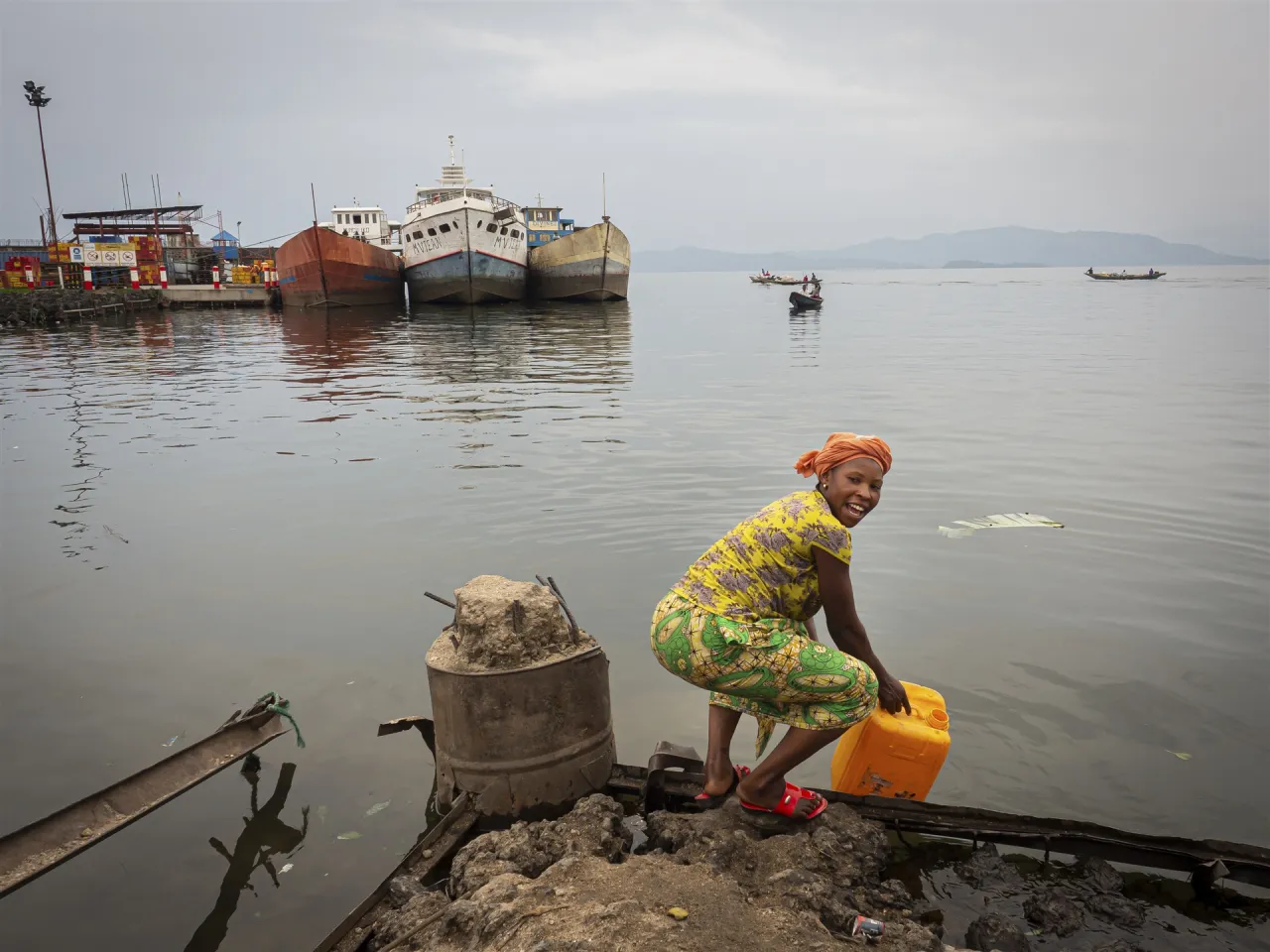
A woman draws water from the lake. She comes here four times a day and carries each time two 25-litres jerrycans. “When you drink this water, I can guarantee you will have a diarrhea. So you have to go to the hospital and you have to pay for it. You feel bad because we have to borrow money here and there to pay the hospital bill,” she explains.
Other contributions to the ICRC have come from the Swiss Agency for Development and Cooperation (SDC), the Swedish International Development Cooperation Agency and the Fondation Lombard Odier. In addition to financial support, the SDC deploys technical experts to the project.
"Switzerland supports the strengthening of Goma's water infrastructure to improve the wellbeing of its population, its health and prevent the spread of water-related diseases such as cholera outbreaks," said Patricia Danzi, director general of the SDC.
"To face the complexity of a crisis, we all need to think short and long term, and adapt our approaches to the humanitarian challenges we meet."
An additional CHF 8 million funding is being sought in 2022/23 for the ICRC to finalize preparation and continue essential emergency works.
ICRC water engineers have been working closely with local partners for the past 25 years to ensure that the city's existing water infrastructure continues to provide water to a large part of the city. The GWWP is an example of working towards sustainable solutions to recurrent emergencies, ultimately saving lives and using funding more effectively.
According to the World Health Organization, investments in water supply and sanitation generate an economic return of up to 4.3 US dollars for every $1 spent.
This would translate to $175 million in economic benefits for Goma and the surrounding region.
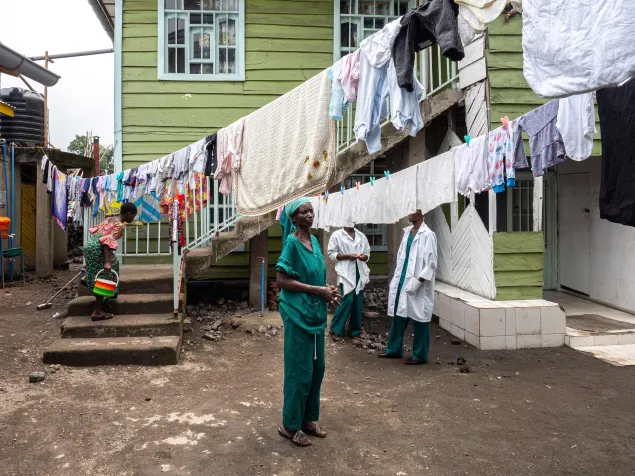
Goma, western part, health center. With no connection to a public water supply and no sewage system, working conditions for medical staff in this facility are far from optimal. The water needed for the center's operations must be carried by hand several times a day.
The project includes the construction of a drinking water supply system composed of water treatment plants, pumping stations and reservoirs.
Once built, the new water infrastructure will need maintaining to ensure sustainability. To that end, the ICRC is also supporting the establishment of the Régie Provinciale, a body that will monitor the quality of the service provided by the water operator.
Partnerships within the International Red Cross and Red Crescent Movement allow the ICRC to connect deeply with communities benefitting from the project and ensure it is affordable and relevant.
"This project is not just about preventing disease, major epidemics and improving public health; it will boost living standards and foster economic growth, as people spend less on water and medical bills, and more on other necessities such as housing and education," said ICRC water and habitat engineer Jérôme Guillaumot, who's managing the Goma project.
"New approaches and partnerships are an essential component to increase the long -term stability of a region that has endured successive conflicts and crises for far too long."
"To break the seemingly endless cycle of violence, poor public health and underdevelopment, equitable access to water is essential. To achieve this, all political and technical actors must be brought together in new public-private partnerships." - Patrick Youssef, regional director for Africa at the ICRC
Read more from Patrick: Access to clean water: a crucial health concern in the Congo-DRC
